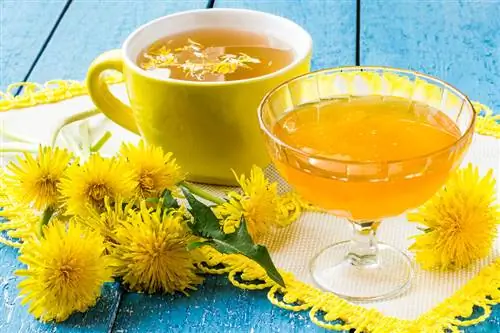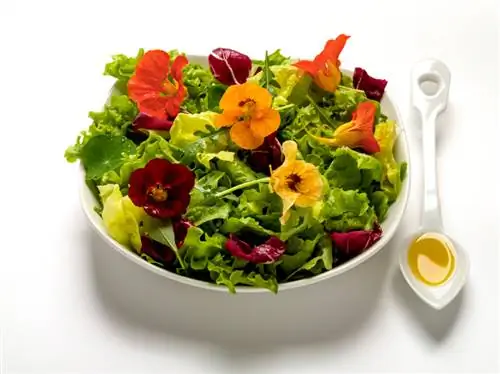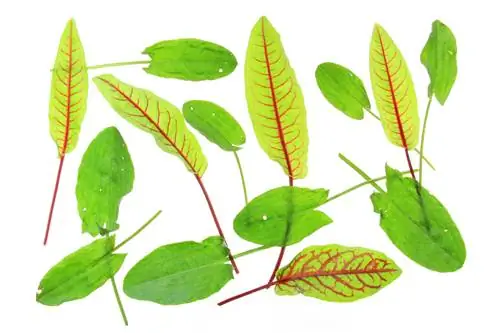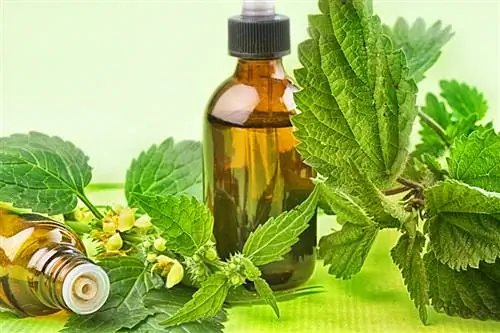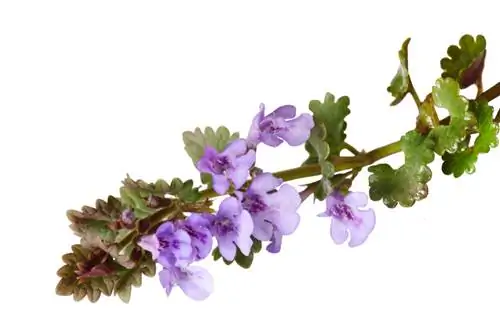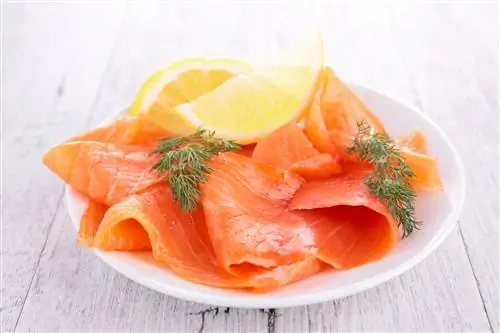- Author admin [email protected].
- Public 2023-12-16 16:46.
- Last modified 2025-06-01 06:02.
It is not only considered an annoying weed, but is also a wild herb rich in vitamins and minerals. It can be found almost everywhere - in meadows, on roadsides, on the edges of forests, in gardens, etc. But what is it good for? What can you use dandelions for?
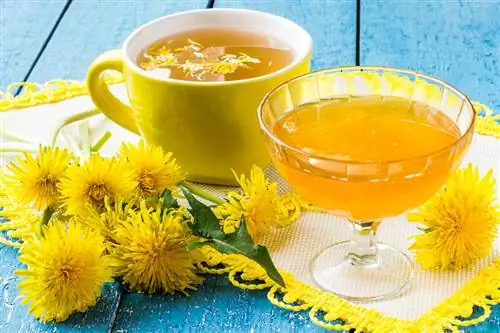
What uses does dandelion have?
Dandelion can be used as a vitamin-rich and he althy ingredient in salads, pestos, smoothies, stews, risottos and teas. The flowers are suitable for syrups and jellies. It also has healing effects on bloating, gastrointestinal complaints, headaches and rheumatism.
Which plant parts can you use?
You can basically harvest all parts of the plant from dandelions. However, the young leaves and flowers are particularly used. The ideal harvest time for the leaves is spring, preferably by June at the latest. The flowers are harvested at the beginning of the flowering period.
Taste of leaves and flowers
While the edible flowers taste pleasantly sweet and can easily be enjoyed hand to mouth, the leaves taste tart and spicy. The older the leaves are, the more bitter substances they contain. Their oxalic acid content also increases with age. Therefore, you should always prefer the young leaves.
Dandelions in the kitchen
You can use dandelion leaves in many different ways in the kitchen. For example, you can use them to make or refine the following dishes:
- Salads
- Pestos
- Smoothies
- Vegetable stews
- Risotto
- Casseroles
- Spinach
- Teas
- Wild herb juices
The leaves of dandelions are also suitable for rolling up vegetables, seedlings and sprouts. The flowers, however, are good for making syrup, jam and jelly. The roots can also be used. They used to be used as a coffee substitute or used to make liqueurs.
Dandelion as a medicinal plant - for the sake of he alth
Dandelions can be a good choice not only for eating, but also for healing. Dandelion has been known as a medicinal herb since ancient times. For example, you can make it into a pressed juice, a tea or a tincture. For a tea, 2 teaspoons of the dried herb in 250 ml of water are enough.
How does dandelion work?
Dandelion has, among other things, an appetite-stimulating, diuretic, antispasmodic, gastric juice stimulating, metabolism-stimulating and anti-inflammatory effect. With these effects, the wild herb can be helpful, for example:
- Fullness
- Flatulence
- Gastrointestinal pain
- Headache
- Spring fatigue
- Water accumulation
- Lose appetite
- Liver problems
- Rheumatism
Tip
Dandelions can also be valuable for animals. For example, it is a good source of nectar and pollen for bees and domestic and pasture animals like to eat its leaves.

